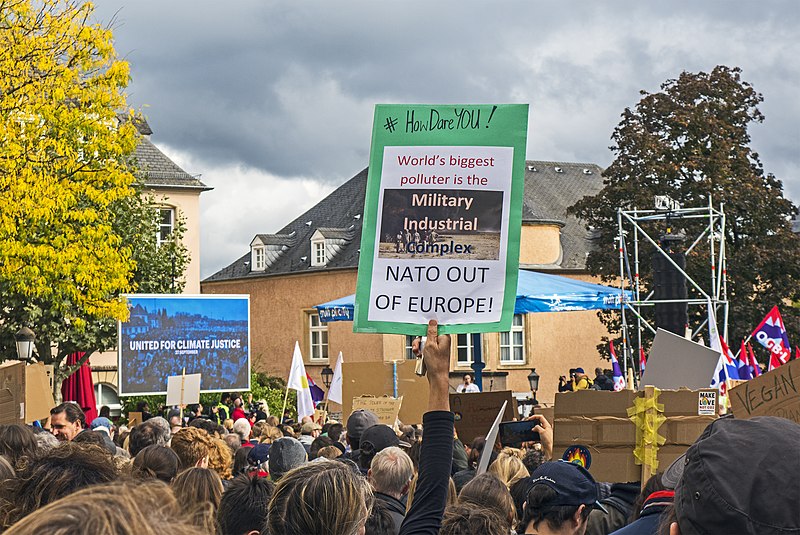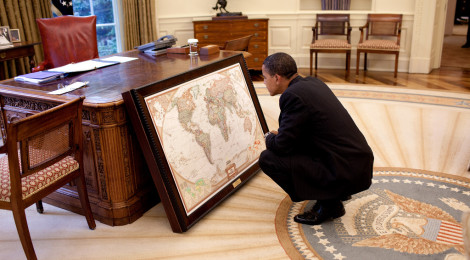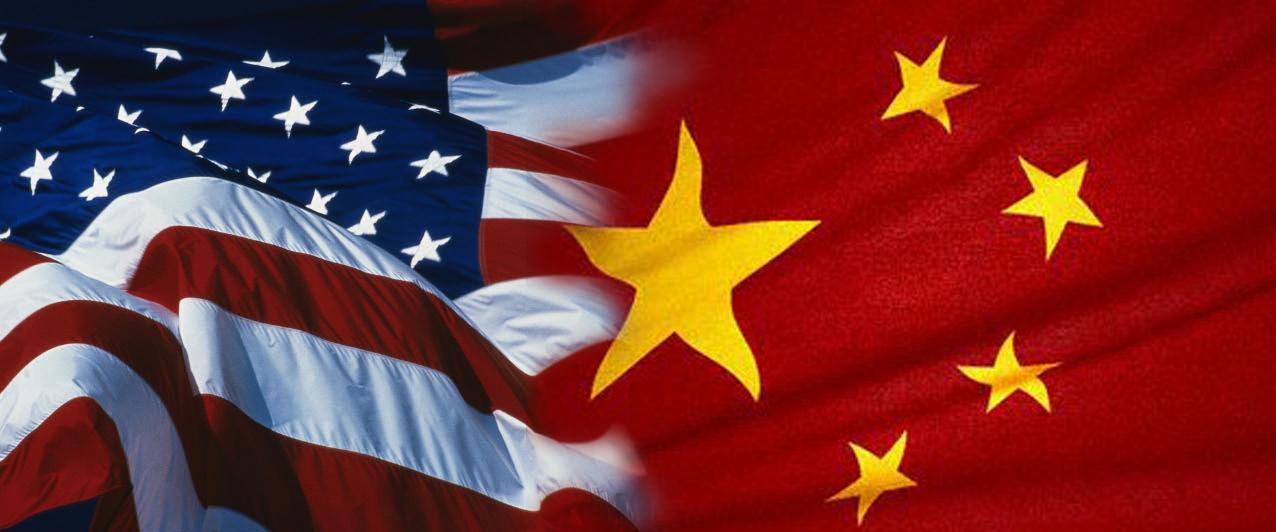The credibility of NATO’s pro-climate stance, at a time when NATO is increasing defence spending to 2% of national GDP, has come under heavy criticism. The increase in defence expenditure is a direction that essentially expands the inventories of non-renewable resource-heavy material. This criticism stems from protestors suggesting that humanity is “killing the planet” by increasing greenhouse gas (GHG) production without regard for the environment, during the so called “sixth mass extinction”.
NATO member states demonstrated their understanding of the environment’s vital importance to the maintenance of global peace and security by investing in the collective reduction of national carbon footprints. Some, such as Canada and the UK, have even integrated environmentally friendly solutions into the fabric of their respective forces, while operating with incremental increases in defence spending. NATO has even showcased a video demonstrating five innovative techniques currently being employed in Forward Operating Bases (FOBs) and Camps.
Rationale behind the criticism:
Protesters often criticize the military for their heavy consumption of fossil fuel, and that the military is among the biggest producers of hazardous waste. These notions being based on the resource heavy equipment utilized along with the large quantities of environmentally hazardous waste. For example, an F-16 Fighting Falcon used by 27 Air forces across the globe including many NATO countries, burns on average 8000 L of aviation fuel per hour without afterburners. Similarly, the majority of military equipment used across the globe has often been linked to increased pollution. As such, NATO members have sought to assessing the effects of military equipment on the environment, while fostering a culture of environmental sustainability from the senior most officers to the junior most soldiers.
NATO as a Green Military Alliance:
NATO is currently being proactive about climate change, recognizing the security threat climate change poses. NATO has encouraged its members to innovate in environmentally friendly military systems. A statement which sounds paradoxical for protesters. Yet, NATO has the potential to be much more proactive in tackling climate change. The following number of suggestions can be utilized by NATO to aid in the collective fight against global warming. The implementation of these suggestions may help define quantifiable results against climate change, rather than continue the pattern of never ending anti-climate accusations.
Possible Suggestions:
Eco-friendly Toilet Paper:
Imagine, if NATO bases switched from non-environmentally friendly toilet paper to a more sustainable toilet paper. The current toilet paper being utilized is considerably harmful for the environment, as it is constructed from normal paper combined with harsh chemicals such as chlorine. Furthermore, the paper required often comes from newly chopped trees. Generally, a need exists to understand that the processes involved in bodily waste management, especially in North America, are actually harmful to the environment. There are alternatives to regular toilet paper, which include bamboo based toilet paper.
The introduction of sustainable toilet paper such as bamboo based toilet paperis less harmful to the environment. This is due to the fact that used bamboo toilet paper tends to decompose into usable energy for plants to grow, without toxic chemicals that endanger the genetic molecular structure of plants. The introduction of eco-friendly paper towel at lower prices can encourage NATO members to equip their forces with environmentally sustainable paper towel, thereby resulting in a decline in the consumption and demand of non-sustainable paper towel.
Vacuum Toilets:
Given that toilet paper is harmful for the environment, are toilets equally as bad, especially on a consumption of water basis. The majority of toilets across the world are notorious for wasting liters of water per single flush. The majority of times, wasted toilet water has to be cleaned, purified and chemically treated to kill harmful bacteria such as E.Coli prior to re-use. This treatment process contaminates the water, inevitably affecting water sources and plant growth. The introduction of vacuum flush toilets such as aircraft toilets may be a more efficient solution. Finnish company EVAC has undertaken extensive research regarding vacuum toilets and their water efficiency systems relative to conventional flush toilets. Such systems remove water and solids via pressure differentials. Vacuum toilets can further enhance the successful growth of plants via the naturally occurring fertilizers evident in excrement, significantly increasing the repair rate of the ozone layer.
The introduction of vacuum toilets in everyday life, could lead to increased water conservation, resulting in a reduction of climate disasters. Similarly, the introduction of vacuum toilets could potentially reduce overall water consumption at all NATO bases. These toilets coupled with eco-friendly paper towel can serve to improve the environment as bio-degradable waste can be given to agricultural industries to enhance agriculture and farming, resulting in self sufficient eco-friendly NATO bases.
Mealworms and Plastic:
Plastic is a major issue affecting the climate, resulting in increased environmental degradation. This is because plastic takes centuries to degrade, resulting in prolonged pollution. The potential capabilities of plastic eating mealworms, which are able to ingest plastic molecules without harming themselves, provides a brilliant solution to combat plastic waste. Scientists note that mealworms have the potential but the best long term solution would be to switch to biodegradable items from single use plastic products. Given the numerous quantities of beverages consumed by people, significant quantities of plastic casing is often disposed into landfill sites. Mealworms may be able to consume the plastic casing around beverage packaging, thereby reducing the amount of plastic entering landfills and further polluting the environment. The use of mealworms in consuming plastic and generating eco-friendly waste from said plastic seems to be the most intriguing. This is particularly true considering the non-existence of waste plants capable of handling most biodegradable beverage containers, especially in Ontario.
In terms of feasibility for NATO, mealworms may be able to significantly reduce plastic waste from NATO bases. This may translate in the establishment of mealworm waste processing facilities. These facilities could end up costing more for taxpayers, given the nature of sustainable military operations. Nevertheless,the marginal benefits associated with such a facility would far outweigh the marginal cost, particularly over the long run. More research, however, is required on mealworms and their plastic consuming abilities. In time, plastic eating mealworms may very well become the norm in eco-friendly environmental waste management practices.
Conclusion:
NATO seems to be doing more about climate change than the very protesters labeling NATO and other organizations as “anti-climate change”. NATO is at the forefront of greening the military industry. The ideas mentioned above contribute to a growing list of ideas, which can be agreed upon and implemented collectively by all countries, given that climate change is a global issue that needs global cooperation. Currently, scientific estimates place the complete restoration of the ozone layer to occur in approximately 40 to 50 years from now, if current pro-climate initiatives continue being implemented. Through collective action and care about the impact people have on their environment, climate change policies would produce visible and quantifiable tangent results.
Featured Image: Demonstration for climate protection in Luxembourg with start at 4 different places and arrival at the Clairefontaine-place on Friday, September 27th, 2019. via MMFE CC. https://commons.wikimedia.org/wiki/File:Manifestation_pour_le_climat_27-09-2019_%C3%A0_Luxembourg_08.jpg
Disclaimer: Any views or opinions expressed in articles are solely those of the authors and do not necessarily represent the views of the NATO Association of Canada.




